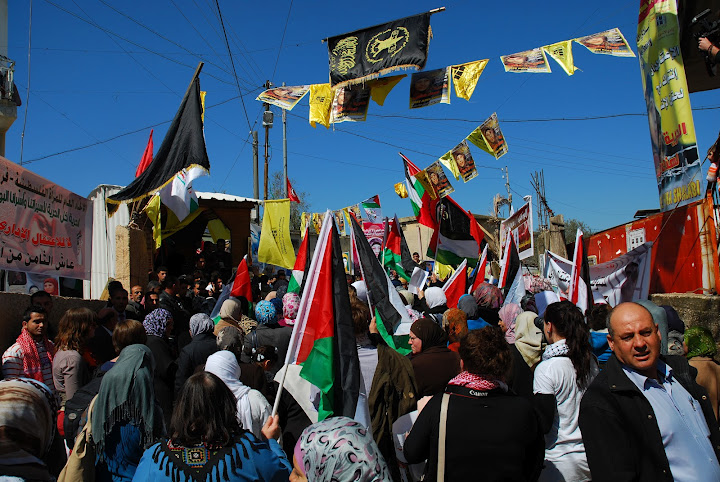-
Bruqin: International Women’s Day Demonstration for Hana Shalabi
by Jeff 8 March 2012 | International Solidarity Movement, West Bank Yesterday, several hundred people traveled from around the West Bank to the village of Bruqin to mark the occasion of International Women’s Day and protest against Israel’s continued imprisonment and confinement of hunger striker Hana Shalabi. Bruqin is Shalabi’s home village, and the […]
-
Breaking: 2 international activists assaulted by extreme settlers in Al Khalil
9 March 2012 | International Solidarity Movement, West Bank Two international activists were assaulted late this morning by extreme Zionist settlers in Al Khalil (Hebron). A female activist was assaulted by a male settler, after being punched in the face and having her camera stolen by this male settler. Today’s attack comes following weeks of warning […]
-
International Women’s Day Marks Hana Shalabi’s 22nd Day of Hunger Strike
8 March 2012 | Palestinian Council of Human Rights Organizations We, the Palestinian Council of Human Rights Organisations (PCHRO), would like to mark International Women’s Day by expressing our solidarity with administrative detainee Hana Shalabi. Hana is today beginning her 22nd successive day of hunger strike in protest at her internment without charge or trial and […]
Action Alert An Nabi Saleh Apartheid Wall Arrests BDS Bethlehem Bil'in Cast Lead Demonstration Denial of Entry Ethnic Cleansing Farmers Gaza Global Actions Hebron House Demolition International law Israeli Army Jerusalem Live Ammunition Nablus Ni'lin Prisoner Ramallah Rubber-coated steel bullets Settlement Settlers Settler violence Tear-Gas Canister Video

